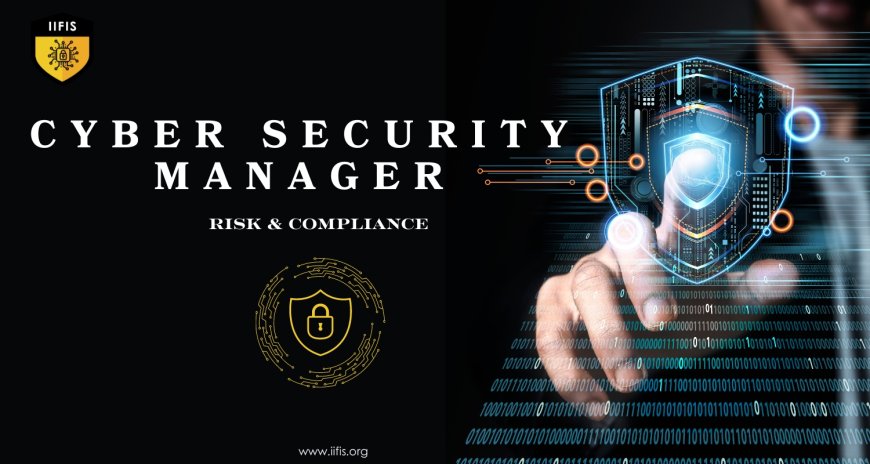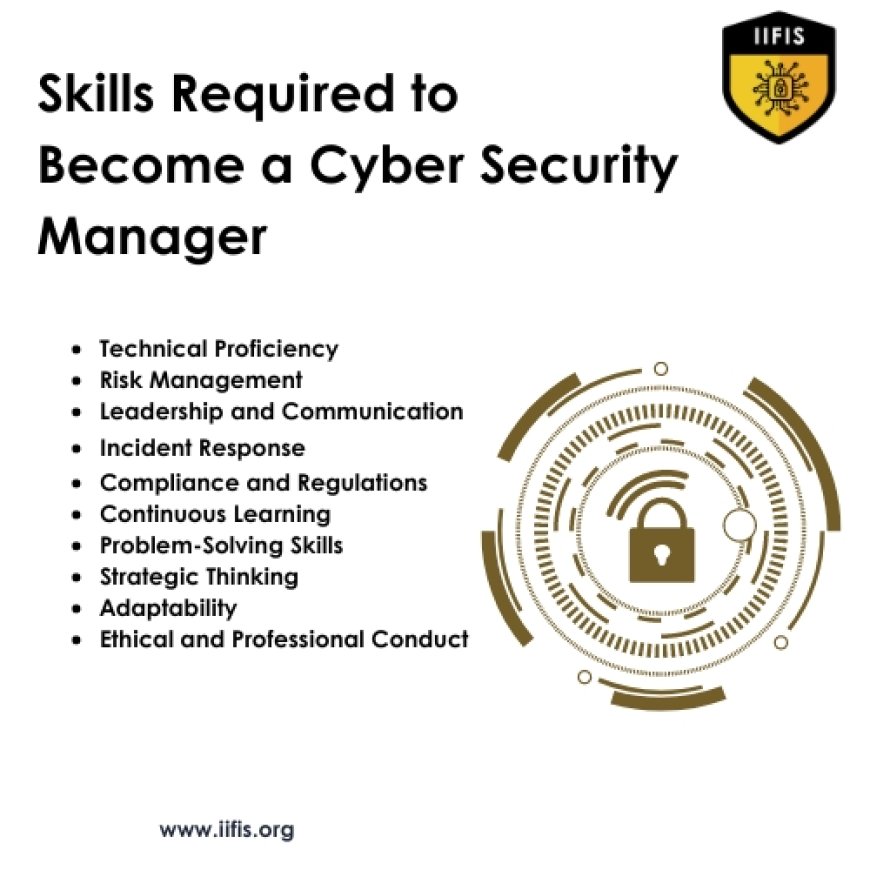Cyber Security Manager Risk And Compliance
Learn how Cyber Security Managers in Risk and Compliance roles keep systems safe from cyber threats. Discover their key tasks and skills for success in simple terms.

Keeping data safe from cyber threats is crucial for any organization. Cyber Security Managers who specialize in risk and compliance play a key role in making sure companies stay secure. Their job is to assess risks, set up security measures, and make sure the company follows all the rules and regulations. To be great at this job, these professionals often get certifications. These certifications show they know how to protect networks, apps, and systems from hackers. Some popular ones are Certified Penetration Testers, Information Security Professionals, and Certified Cyber Security Managers. But even if you're just starting, there are entry-level certifications like Information Security Foundation and Cyber Security Associate. These give you the basics you need to start a career in cybersecurity.
Take a closer look at what Cyber Security Managers do, why risk management and compliance are so important, and how certifications can help professionals in this field.
The Growing Importance of Managing Cybersecurity
Managing cybersecurity is like making a plan to keep everything safe. It involves figuring out what might go wrong, putting measures in place to stop bad things from happening, and keeping an eye on things to make sure everything stays safe. To be good at managing cybersecurity, people often get special certifications. These certifications give them the knowledge and skills they need to do the job well. Some of these certifications include Information Security Foundation, Information Security Professional, Certified Penetration Tester, Cyber Security Associate, and Certified Cyber Security Manager.
As cyber-attacks get more common and sneaky, many different kinds of organizations realize they need someone to manage their cybersecurity. This includes places like banks, hospitals, and government agencies. By investing in cybersecurity and having trained professionals, organizations can make sure their stuff stays safe and that people trust them to keep their information secure.
Managing Security, Compliance, and Risk in Cyber Security
Cybersecurity, it's tough for cybersecurity managers to keep everything in check. They have to juggle security, following rules, and handling risks. Let's break down the challenges they face:
1. Following Rules vs. Keeping Safe
A big problem is that security rules often don't match up perfectly with what keeps a company safe. Managers have to find a balance between meeting rules and protecting the company from cyberattacks.
2. Not Enough Resources
Managers often don't have enough money, people, or technology to do everything they need to do. It's hard to make sure everything stays secure and follows the rules when there aren't enough resources.
3. Keeping Up with New Threats
Cyber threats are always changing, which makes it hard for companies to stay safe. Managers have to constantly update security measures to deal with new risks. What's okay today might not be tomorrow.
4. Risks from Other Companies
Companies often work with other businesses, which can bring in new risks. The other companies might not have the same level of security. Managers have to watch these risks closely while still following the rules.
5. Balancing Risks
Every company has its level of risk it's willing to take. This might not match up with what the rules say or what's best for security. Managers have to find a balance between following the rules and keeping the company's risk level in check.
6. Dealing with Complex Technology
As technology gets more advanced, it becomes harder to keep it all safe. Things like cloud services and smart devices add new challenges. Managers need to understand all these different parts and the risks that come with them.
How can cyber security managers effectively handle security, compliance, and risk management challenges?
Being a cyber security manager means playing a big role in keeping a company safe from online threats, making sure they follow all the rules and managing risks. Here's how they can do it: First, they need to ensure everyone in the company understands and follows the security rules. They should set up clear ways for different departments to talk about security. Second, using tools that do some tasks automatically can save time. This means they have more time to think about big-picture stuff like planning for risks. Third, they must always stay updated on the latest threats and rules. Going to conferences and doing training can help them stay on top of things.
Finally, making sure everyone in the company knows about security and how to stay safe is super important. Regular training and reminders can help stop mistakes that could lead to big problems. Overall, being proactive, communicating well, and always learning is key for cybersecurity managers.

The Role of a Cybersecurity Manager in Keeping Things Safe and Legal
What does a cybersecurity manager do to make sure a company follows the rules and stays safe online?
A cybersecurity manager has an important job in today's world. They're like the guardians of a company's digital safety and make sure they don't break any rules. Let's break down what they do:
1. Identifying Risks: They look for things that could go wrong, like hackers getting into the company's computer systems or data being stolen. By figuring out these risks, they can make plans to stop them from happening.
2. Following Rules: There are a lot of rules about keeping data safe, like GDPR or HIPAA. Cybersecurity managers need to know all these rules and make sure the company follows them. If they don't, the company could get fined or lose people's trust.
3. Setting Up Security Measures: They put in place tools and rules to keep everything safe. This includes things like firewalls and encryption to stop bad guys from getting in and taking data.
4. Watching for Problems: Cybersecurity managers keep an eye on everything to spot any weird activity that might mean someone is trying to break in. If they see something fishy, they jump into action to stop it.
5. Teaching Others: They make sure everyone in the company knows how to stay safe online. This means training sessions and reminders about not clicking on suspicious links or sharing passwords.
cybersecurity managers have a big job in making sure a company's digital world is safe and legal. They find risks, follow the rules, set up protections, watch for trouble, and teach others to do the same.
The role of a Cyber Security Manager specializing in Risk & Compliance is really important for keeping organizations safe from ever-changing cyber threats. These professionals carefully assess risks, set up strong rules to follow, and come up with plans to stop problems before they happen. They make sure that important data and systems are kept safe and available when needed. By making sure everyone in the organization knows about security and follows the rules, they help prevent financial losses, damage to reputation, and legal troubles. In a world where everything is getting more and more digital, their knowledge is crucial for keeping organizations safe and strong. They're like the guardians of the organization, always ready to adapt and strengthen defenses against cyber bad guys.
























